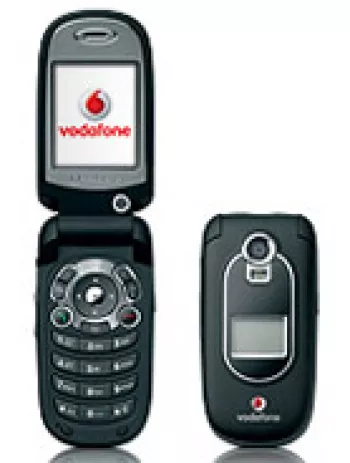
Overview of Vodafone 345 Text
Released in 2010, the Vodafone 345 Text was targeted as an entry-level device for users who prioritized basic functionality combined with a QWERTY keyboard. It served as a practical tool for those predominantly interested in texting and basic communication.
Network Capabilities
The Vodafone 345 Text supports GSM technology, specifically accommodating frequencies of GSM 900, 1800, and 1900. However, it lacks both GPRS and EDGE, limiting its data connectivity options and solidifying its role strictly as a voice and text communication device.
Launch and Market Availability
The device was officially announced in April 2010 and made available in the market by July 2010. Although it has since been discontinued, it remains a noteworthy example of early texting-focused mobile phones.
Design and Build
The phone is built with an emphasis on ease of use and portability. While specific dimensions and weight are unspecified, it features a QWERTY keyboard, which was not widely available in budget phones at the time. The device supports the Mini-SIM format, which was standard at the period of release.
Display
The Vodafone 345 Text is equipped with a 1.8-inch TFT display supporting 65K colors. This screen size, while modest, was suitable for viewing SMS and basic interface elements. The lack of resolution detail suggests a focus on functionality over high-definition display quality.
Memory and Storage
Internal memory management on the Vodafone 345 Text is basic, reflecting its role as a feature phone. It does not support external memory cards, which limits its capacity to storing contacts within the phonebook and maintaining call records. The absence of additional storage options emphasizes its role as a communication tool rather than a multimedia device.
Camera and Multimedia
The device does not house a camera, underscoring its primary focus on texting and calling. While lacking in multimedia capabilities, it does include a loudspeaker but does not offer a 3.5mm headphone jack for personal audio listening.
Connectivity and Communication
Connectivity features are notably limited, as the Vodafone 345 Text does not support WLAN, Bluetooth, GPS positioning, or USB connectivity. The absence of these technologies aligns with its function as a basic communication device. However, it does include an FM radio, offering access to music and news broadcast.
Software and Features
The phone operates on a basic feature phone OS with minimal software features designed to enhance stability and battery performance. Messaging is facilitated through SMS, with no support for internet browsing or Java-based applications. Simple games are included to provide basic entertainment options.
Battery Life
The Vodafone 345 Text is powered by a removable Li-Ion battery, a standard choice that provides convenience for replacing batteries if necessary. Its hardware efficiency likely contributes to a longer operational lifespan on a single charge, fitting its purpose as a text-heavy device.
Color Variants and Pricing
Offered in black, white, and pink, the device provided users with basic style choices. With an original pricing around 20 EUR, the Vodafone 345 Text was positioned as an affordable option for basic communication needs.
Conclusion
The Vodafone 345 Text exemplifies a specific era in mobile phone design, where functionality for communication was a prime target over advanced features. Its reasonable pricing and practical QWERTY keyboard layout catered to individuals valuing straightforward phone use, primarily for texting and calling. Despite its discontinuation, its simplicity and focus on its core purpose remain useful in discussions of mobile phone evolution.
Key Features of Vodafone 345 Text
- GSM Technology supporting 2G bands (GSM 900/1800/1900)
- Compact design with QWERTY keyboard
- Display: 1.8 inches TFT with 65K colors
- FM Radio for entertainment
- Removable Li-Ion battery for easy replacement
- Available in three colors: Black, White, Pink
- Affordable pricing, approximately 20 EUR
Disadvantages of Vodafone 345 Text
- No support for GPRS or EDGE, limiting data connectivity.
- Lacks advanced network technologies beyond basic GSM.
- No Bluetooth or USB support for connectivity and data transfer.
- Absence of WLAN means no Wi-Fi internet access capability.
- Very small display size of 1.8 inches.
- No expandable memory card slot.
- Does not feature a camera.
- Missing 3.5mm headphone jack for standard audio connections.
- No browser capability, limiting access to internet content.
- No support for Java, reducing available applications and customizability.
- Limited to SMS for messaging, lacking support for MMS or other communication methods.
- No GPS or positioning features present.
- Limited phone functions with focus mainly on basic telecommunication.
View Also
More Phones
All Rights Reserved +13916 Phones © Mobilawy 2025

























